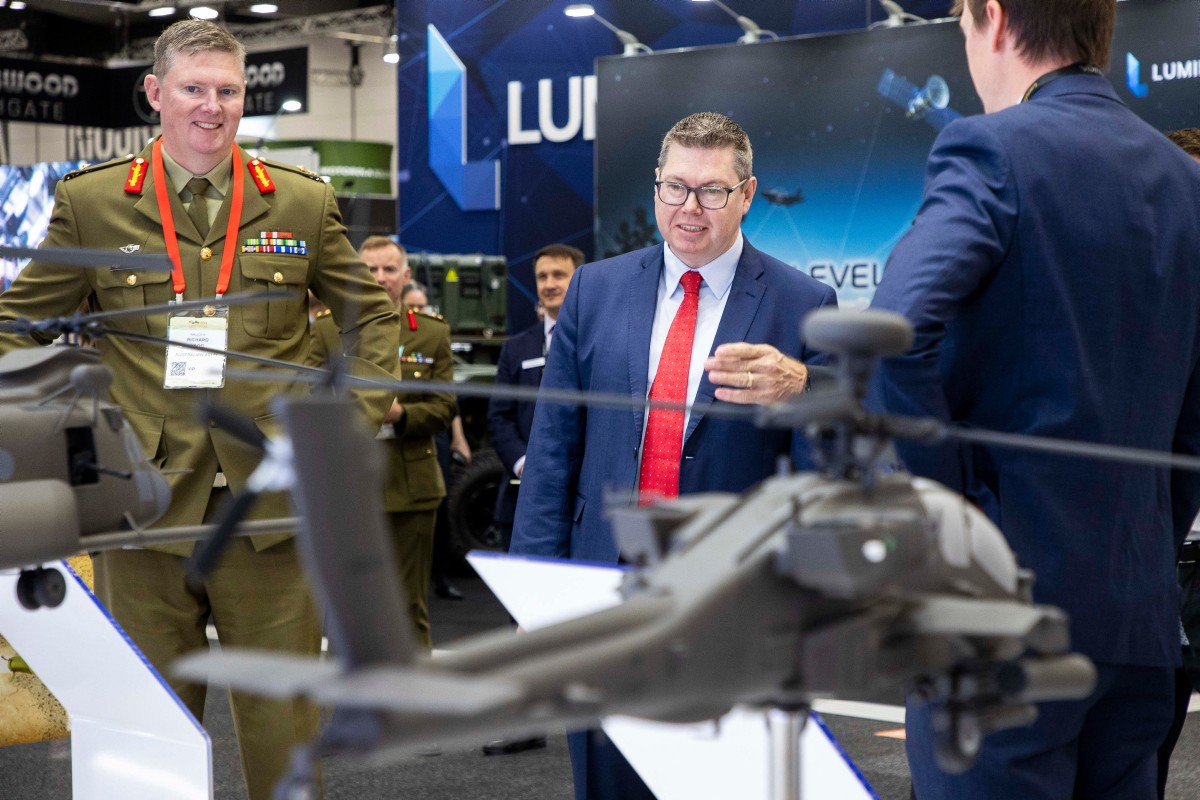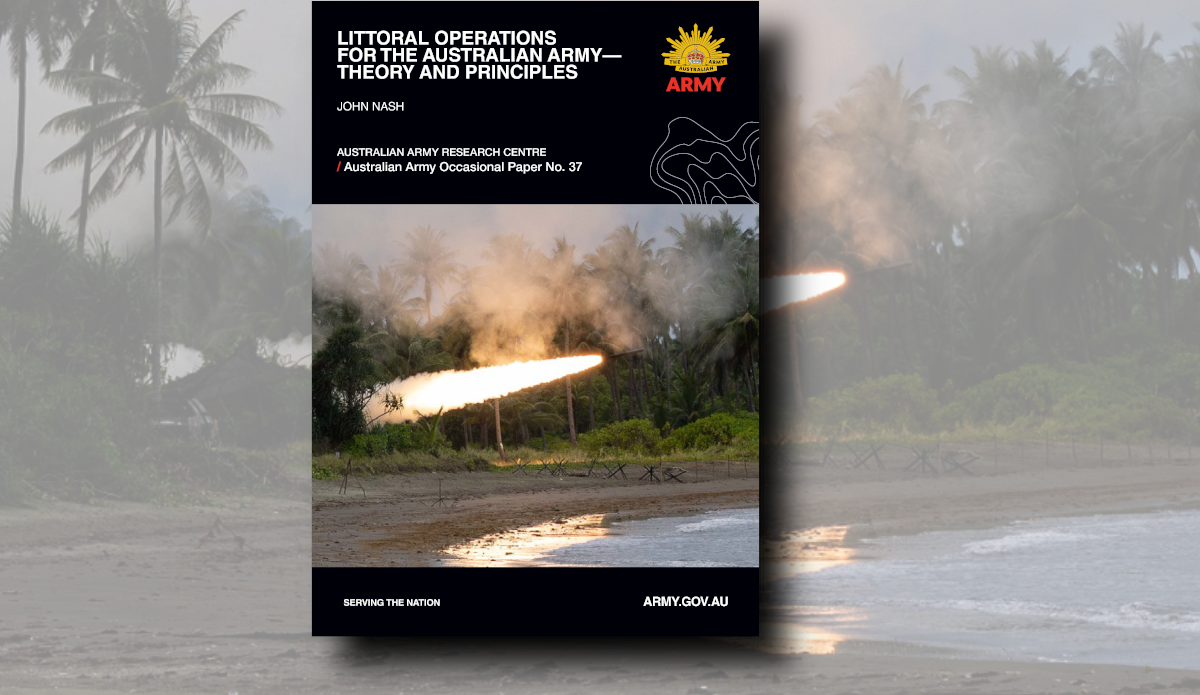‘Observing how our past appeared when it was the future can help us understand why events occurred as they did, how individuals became prisoners of their experiences and missed what was blindingly obvious to later generations, and occasionally saw what was coming, only to be dismissed by their contemporaries. In short, the future of war has a distinctive and revealing past.’
Lawrence Freedman[1]
History is an assessment of events from the past retold in the present. History is often biased; it is both tragic and glorious serving as a repository for human experience. Military history is no different with its tragedy, loss, and horror of magnificent proportions. Tales of individual heroism, of stalemate, defeat, and destruction are juxtaposed with clinical figures of the dead, evolutionary and revolutionary technology, and myriad examples of organisational adaptation, for better or worse. Importantly, examination of military history is the identification of the links between the past and present that most readily help us put our own decisions and actions in context to best enable adaptation.
In stating the inherent value of military history, historian Williamson Murray observed:
Simply put, if you do not know where you have been (the past), then you do not know where you stand, and any road to the future will do. Thus, a perceptive understanding of the present based on historical knowledge is the first step to thinking about the future.[2]
This article offers a view to the reader that military history is important as it informs learned experience and entreats us not to blindly follow what we think we already know. It seeks to inspire you to critically examine, to extract the real lesson, and truly understand how to discriminately apply historical lessons to the future of war.
Writing in the Australian Army Journal in January 1968 during what would soon become Australia’s longest war of the twentieth century, then Colonel E.G. Keogh (retired) asserted:
Military history is the story of the profession of arms, of the influence that profession has had on the general course of events, of the contribution it has made to our national life. Know something of the history of our army, of its exploits, for that history conditions our professional outlook.[3]
Keogh would ultimately describe military history as a way to convey military experience and develop a critical approach. In countless pages of every book is the opportunity to learn from the experience of another practitioner. In his 1948 memoir describing his own learned experience, Dwight D. Eisenhower posited:
The lessons of 1914 and 1939 remain valid so long as the world has not learned the futility of making competitive force the final arbiter of human questions.[4]
As Freedman ably describes in the opening quote of this blog, the future has a distinctive and revealing past we can learn from. Paraphrasing Thucydides in his work On the Origins of War, Donald Kagan observed:
History is useful to those who wish to have a clear understanding both of events in the past and of those in the future, which in all human likelihood, happen again in the same or similar way.[5]
What remains is the desire for us to pursue the lessons, understand the inherent value of such a past, and to accurately seek the context that differentiates a lesson from history with its application for the future.
Great Captains of History studied history
The study of history is a way to exercise critical thought and conduct internal examination. Frederick the Great noted:
What good is experience if it is not directed by reflection… A mule who has carried a pack for ten campaigns… will be no better a tactician for it.[6]
Frederick sought to imbue his army with a way to maintain its superiority over time—a process of critically examining learned experience. Frederick discerned the essential conditions imposed on war by contemporary society—economic and technological; he organized and trained his forces to make the most of them.[7] Accepting the automatic application of learned experience will only take an army so far; Frederick’s views on the most effective method of attack changed over the years.[8] Notwithstanding the wholesale destruction Frederick’s army would undergo at Jena-Auerstadt in 1806, his legacy was still one of learning to be later invigorated by the little known military reformer Gerhard von Scharnhorst, and his erudite sidekick, Carl von Clausewitz.
Scharnhorst’s approach, using military history as the primary vehicle, sought to develop a cult of objectivity, responding to critical, independent analysis of the facts. For Scharnhorst, the study of history had to be critical. He asserted:
Nothing is more dangerous here than using personal experience without regard for that experience which military history teaches us.[9]
At his premature death in 1813, Scharnhorst did not see the immediate result of his labour to rapidly reform the Prussian army and defeat Napoleon at Leipzig. Despite this, he remained influential in establishing a professional military tradition that would periodically rise and fall in Germany until the early 1940s. Scharnhorst’s early drive to reform was based on his personal experience as an outsider in the Prussian nobility driven forward by the destruction of a Frederickan-era army at Jena. Scharnhorst recognised that good leaders are not developed if given scenarios are to follow. It is here that the objective and critical study of history would help officers understand their profession. For Scharnhorst, war and warfare could not be studied in isolation; they were somethings shaped and conditioned by larger historical forces—the context of the day.[10] Echoing Scharnhorst’s views on historical context and critical thinking were those also espoused by his then student, Clausewitz.
For those who have waded through his didactic, Clausewitz’s suggestion as to the value of military history throughout On War is self-evident. He states:
Military history in all its aspects is itself a source of instruction for the critic, and it is only natural that he should look at all particular events in the light of the whole.[11]
Clausewitz emphasises the importance of distinguishing between the critical approach and the plain narrative of a historical event to extract the lesson. In the critical approach, he illuminates three intellectual activities. First, historical research through discovery and interpretation of equivocal facts; second, the tracing of effects back to their causes (establishing theory); and, finally, the investigation and evaluation of means employed.[12] Clausewitz connects critical analysis and historical research—something that cannot be overlooked when we engage with military history today. In applying history, he asserts that there are four points of view. The first is that a historical example may be used to explain an idea, and second, the application of an idea. The third point of view is that appealing to historical fact supports a statement, in order to prove the possibility of a phenomenon or effect. Lastly, the detailed presentation of a historical event—a way to deduce a doctrine with its own difficulty to prove subsequent application.[13] This is the most difficult of the four. Clausewitz states:
If anyone lists a dozen defeats in which the losing side attacked with divided columns; I can list a dozen victories in which that very tactic was employed… Reflection upon these diverse circumstances (context) will show how easily examples may be misused.[14]
History Matters
In his seminal warning on the misuse of military history in 1961, Sir Michael Howard states:
The lessons of history are never clear. Clio is like the Delphic oracle: it is only in retrospect, and usually too late, that we understand what she was trying to say.[15]
The application of military history requires an understanding of context, no small amount of critical thinking, and the courage to make an argument for the greater good—toward the betterment of our institutions. As Keogh posited in 1968, echoing the Enlightenment thinking of Scharnhorst and Clausewitz, history is learned military experience to be studied critically. For those adverse to deep historical study, General James Mattis offers today:
Ultimately, a real understanding of history means we face nothing new under the sun…We have been fighting on this planet for 5000 years and we should take advantage of their experiences. Winging it and filling body bags as we sort out what works reminds us of the moral dictates and the cost of incompetence in our profession.[16]
Over a century since the end of the Great War, it remains as important as ever to reflect on our military history to best prepare us for the future. We should think critically, examine the context of the day, and all with a mind to how it will apply to the future of war and warfare—after all, it may be the only thing we get right.
[1] Lawrence Freedman, The Future of War: A History, (New York: Public Affairs, 2017), xvii
[2] Williamson Murray, America and the Future of War: The Past as Prologue, (Stanford: The Hoover Institution Press, 2017), 3.
[3] E.G. Keogh, ‘The Study of Military History’, Australian Army Journal, Vol 224, (Jan 1968), 4.
[4] Dwight D. Eisenhower, Crusade in Europe (New York: Doubleday, 1949), 476.
[5] Donald Kagan, On the Origins of War, (New York: Doubleday, 1995), 11.
[6] Jay Luvaas (ed), Frederick the Great on the Art of War (New York: de Capo, 1999), 47. Credit to Professor Wray Johnson (retired) for his tutelage on the subject.
[7] Peter Paret, Yorck and the era of Prussian Reform (Princeton: University press, 1966), 13.
[8] Ibid.
[9] Charles Edward White, The Enlightened Soldier (Westport: Praeger, 1989), 91.
[10] Ibid, 57.
[11] Clausewitz, Carl von. On War. ed. and trans., Michael Howard and Peter Paret. (Princeton, NJ: Princeton University Press, 1976, repr. 1984), 165.
[12] Ibid, 156.
[13] Ibid, 171.
[14] Ibid, 172.
[15] Michael Howard, ‘The Use and Abuse of Military History’, The Causes of War and other essays (London: Temple Smith,1983), 195.
[16] Jim Mattis and Bing West, Call Sign CHAOS (New York: Random House, 2019), 257.



